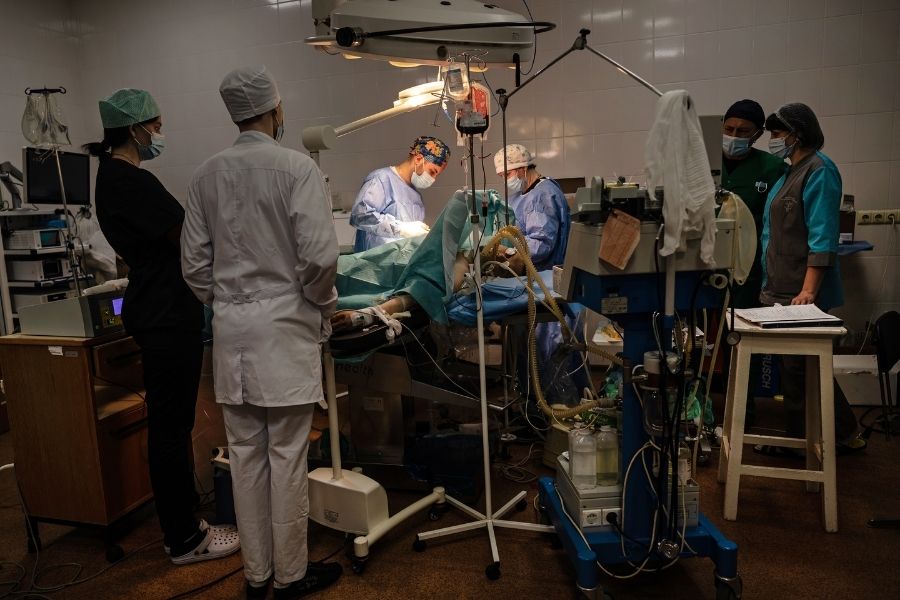
In Ukraine, gruesome injuries and not enough doctors to treat them
Many doctors had fled the fighting, and conditions at the hospital resembled a bygone era of warfare, with the surgeons who remained amputating limbs, instead of trying to repair them, to save grievously wounded soldiers
 Doctors try to save the arm of a Ukrainian soldier who was wounded by Russian shelling in Zaporizhzhia, April 25, 2022. Months of Russian artillery, airstrikes and rocket attacks have overwhelmed the hospitals of Eastern Ukraine, which are operating on skeleton crews or have been abandoned completely. Images: Lynsey Addario/The New York Times
Doctors try to save the arm of a Ukrainian soldier who was wounded by Russian shelling in Zaporizhzhia, April 25, 2022. Months of Russian artillery, airstrikes and rocket attacks have overwhelmed the hospitals of Eastern Ukraine, which are operating on skeleton crews or have been abandoned completely. Images: Lynsey Addario/The New York Times
KRAMATORSK, Ukraine — Days after Russian forces invaded, Yaroslav Bohak, a young cardiovascular surgeon, was at home with his family in the relative safety of western Ukraine when a colleague placed a desperate call from the east, pleading with him to come help.
Many doctors had fled the fighting, his friend said, and conditions at the hospital resembled a bygone era of warfare, with the surgeons who remained amputating limbs, instead of trying to repair them, to save grievously wounded soldiers.
“He called me and said he could no longer cut off the arms of young people,” Bohak said, as he stood in an operating room of a hospital in Kramatorsk. “When I came here, I had surgery on the first day.”
As Russian forces pummel eastern Ukraine with a mix of artillery, airstrikes and rocket attacks, front-line hospitals, many of them in poorer, rural areas, have become overwhelmed. They are severely short-staffed or have been abandoned completely, as doctors and nurses have fled the violence.
All day long, the walls of the hospital shake with the thunder of battles raging near Kramatorsk, an industrial city in the Donbas region, where Russian forces have been waging a bloody offensive. A steady stream of ambulances arrives at the sandbag-reinforced emergency room, ferrying soldiers and civilians, many with life-threatening wounds.
©2019 New York Times News Service




